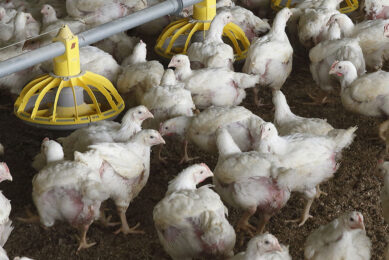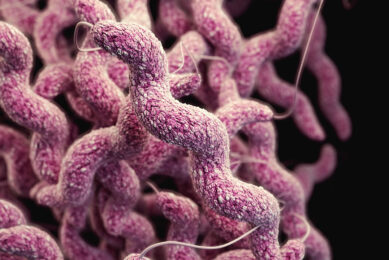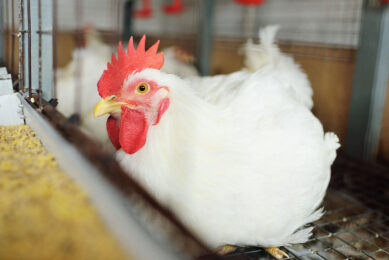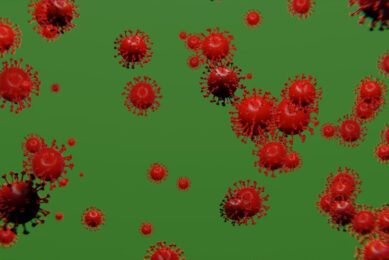Fighting anti-microbial resistance in poultry
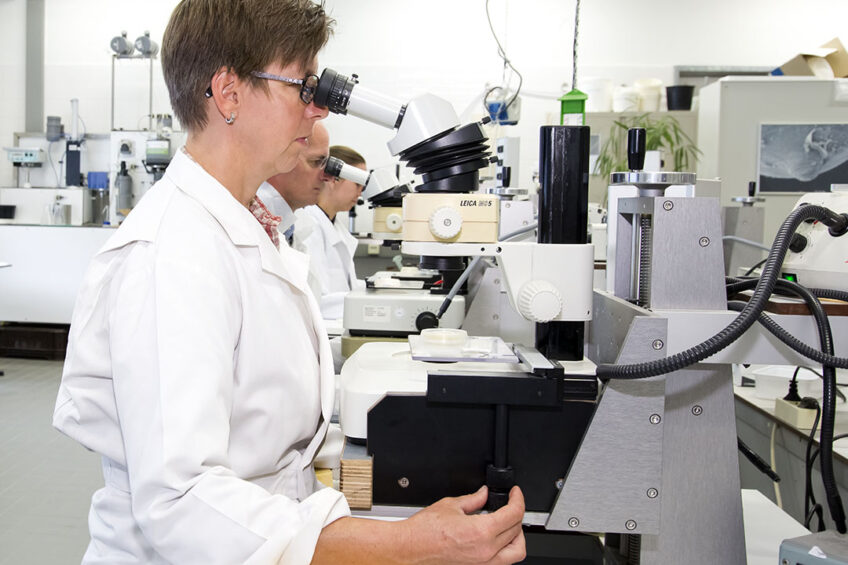
New ways to reduce pathogen contamination in livestock rearing have been successfully trialled and offer a way forward in the fight against anti-microbial resistance. Working together in an Innovate UK-funded project, Folium Science and the Quadram Institute at the University of East Anglia are using new technology called Guided Biotics that can selectively remove pathogenic bacteria from the food chain.
The trial has been looking to tackle Salmonella, which causes more than 90,000 human cases of salmonellosis in Europe each year, resulting in economic losses of €3 billion and £156 million in the UK. Globally, poultry production is the fastest-growing livestock sector, and, as such, it was selected as the model system for the development of new interventions applicable across animal production systems. Avian-pathogenic bacteria reduce poultry productivity significantly, and Salmonella-infected poultry is a major risk to human health and is commonly resistant to multiple antibiotics.
Professor Martin Woodward, Folium Science chief scientific officer and project lead, said Guided Biotics uses CRISPR technology to identify unique DNA sequences found only in the target bacterial species and then triggers those sequences to self-destruct by natural DNA degradation, leading to simultaneous destruction of the bacterium.
The strategy is target-specific, which is another advantage over antibiotics that also kill beneficial bacteria. Professor Bob Kingsley’s team at the Quadram Institute of Biosciences have, in turn, used their expertise in bio-informatics to evaluate and optimise the targeting of pathogens to ensure that healthy bacteria are spared.
Three trials
Three proof of concept trials were carried out and conclusively demonstrated that the product dramatically reduced populations of Salmonella bacteria in poultry. Guided Biotics was given to test groups of birds in their drinking water, while control groups received only water. All the birds were then exposed to Salmonella, and levels of infection were subsequently recorded. Collectively, the abundance of Salmonella was significantly reduced in test birds receiving Guided Biotics compared with the controls – with a 3,000-fold reduction in colonisation.
Regulations are in place to minimise human food-borne Salmonella infections from animal derived-food, particularly poultry, where multiple anti-microbial resistance is a severe concern, and alternatives are urgently required. The product targeted at Salmonella will also support the elimination of this pathogen from the food chain.
“Stunning data”
Commenting on the study, Prof Woodward, who is also chair of Gut Microbiome Studies at the University of Reading, said: “This project is providing stunning data. It shows the huge potential for Guided Biotics to be a very meaningful tool in the selective removal of unwanted bacteria in poultry and other livestock.”
Ed Fuchs, Folium Science co-founder, added: “We can reduce the biosecurity risk of Salmonella infection by 3 to 5 fold which is very, very significant.”
New products based on the CRISPR technology are under development for the control of commercially-significant bacteria in poultry, pigs, cattle and aquaculture, as well as bacterial blights in fruit, vegetable and other staple food crops.




